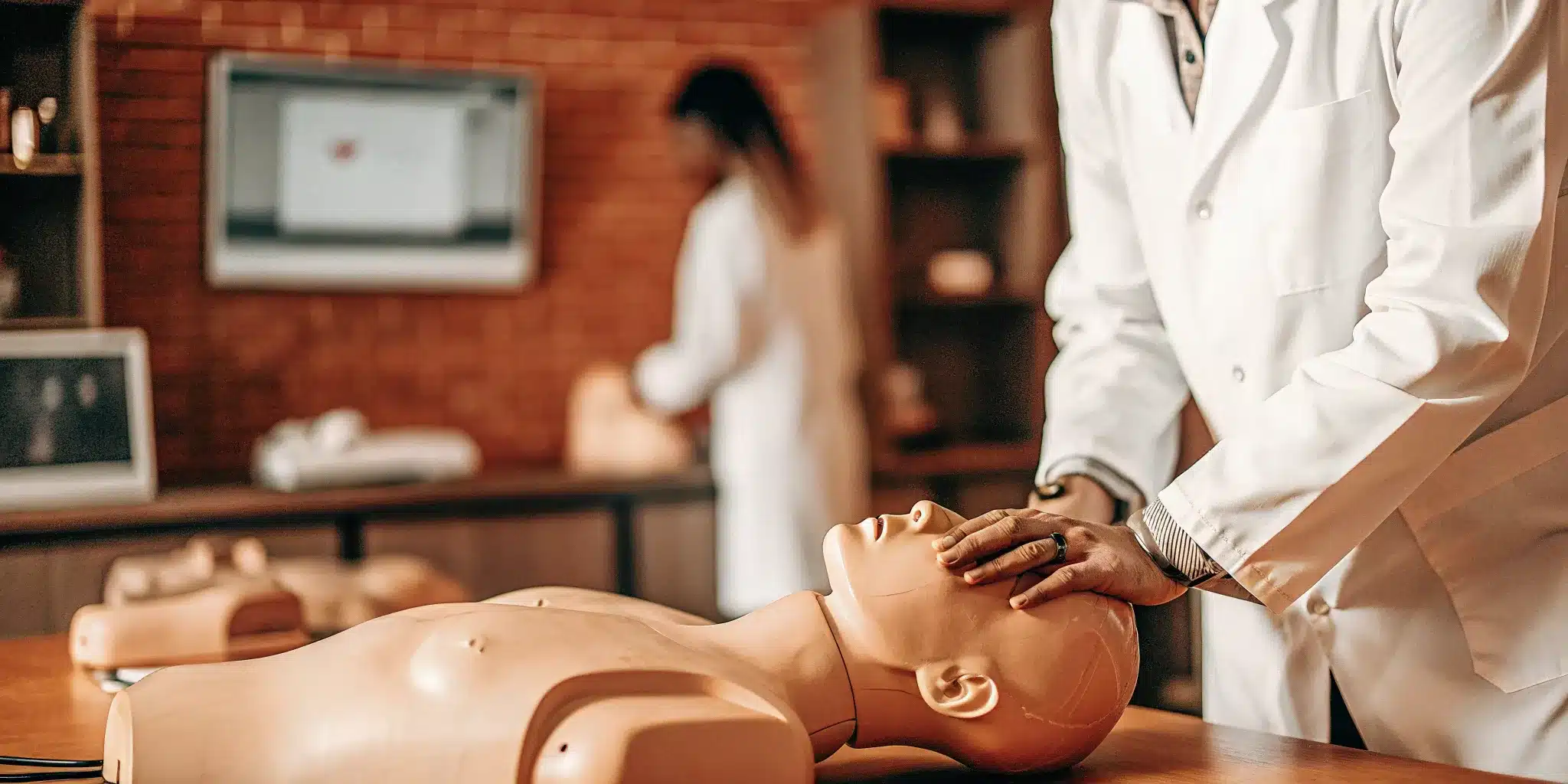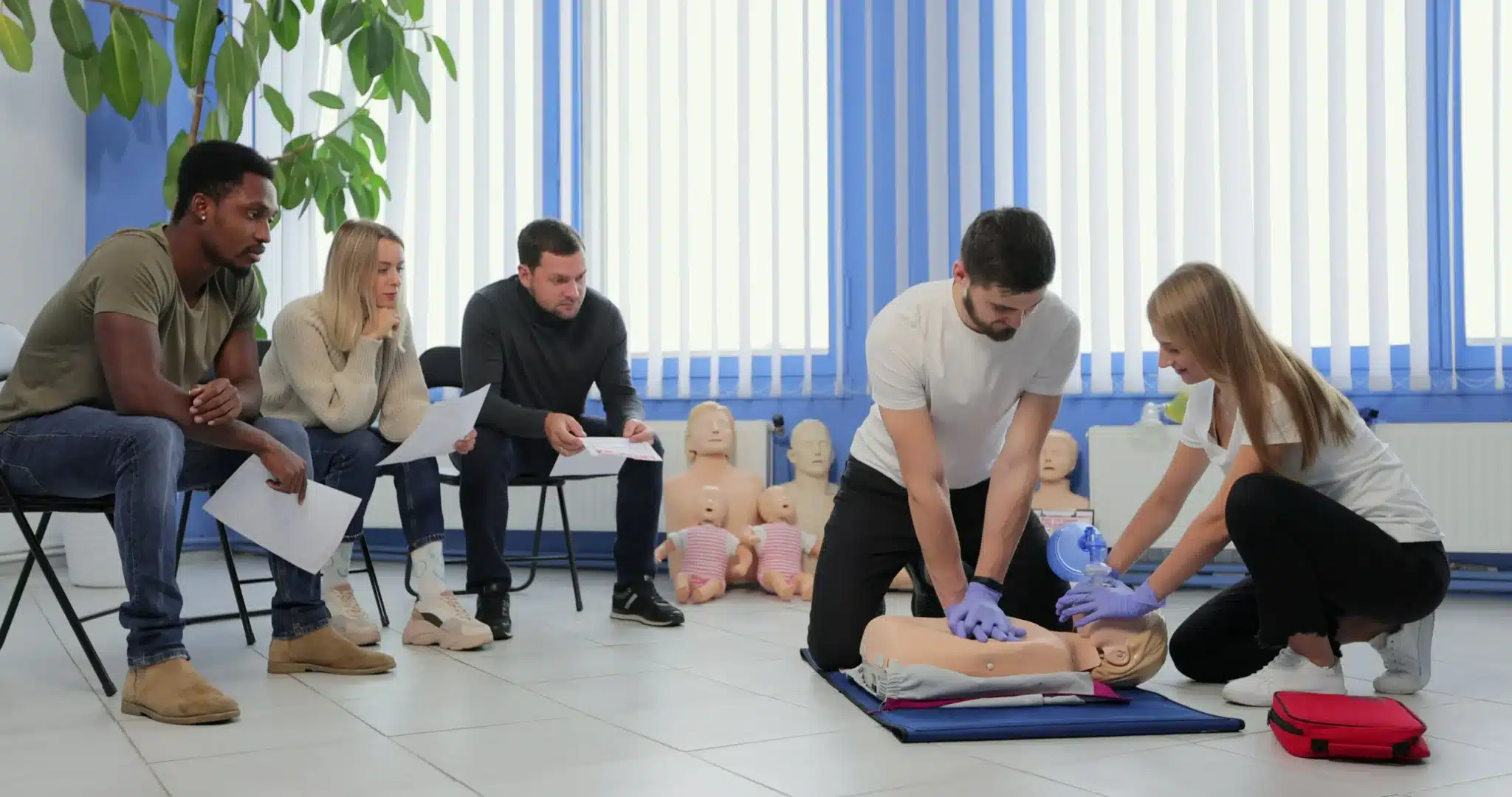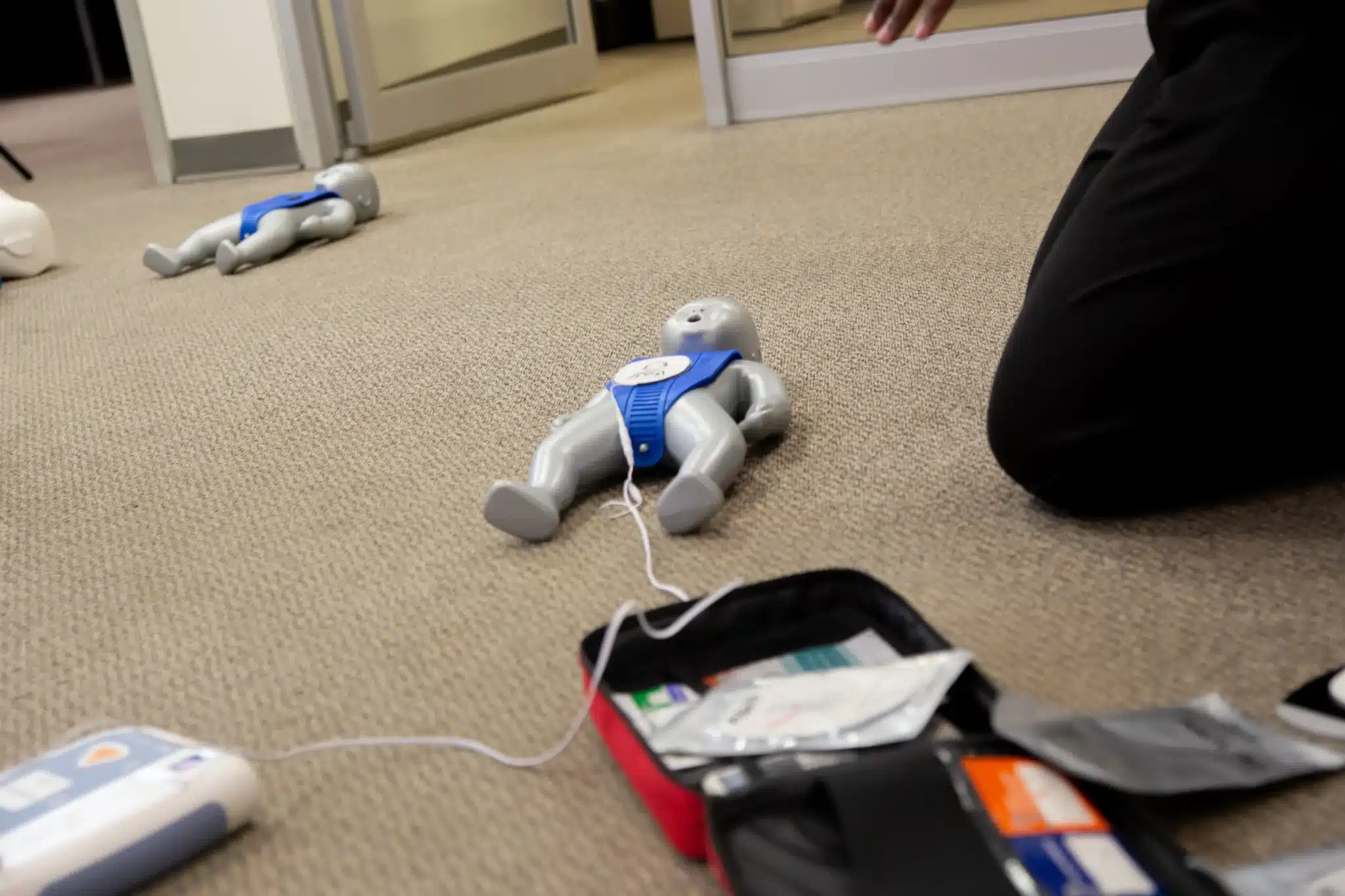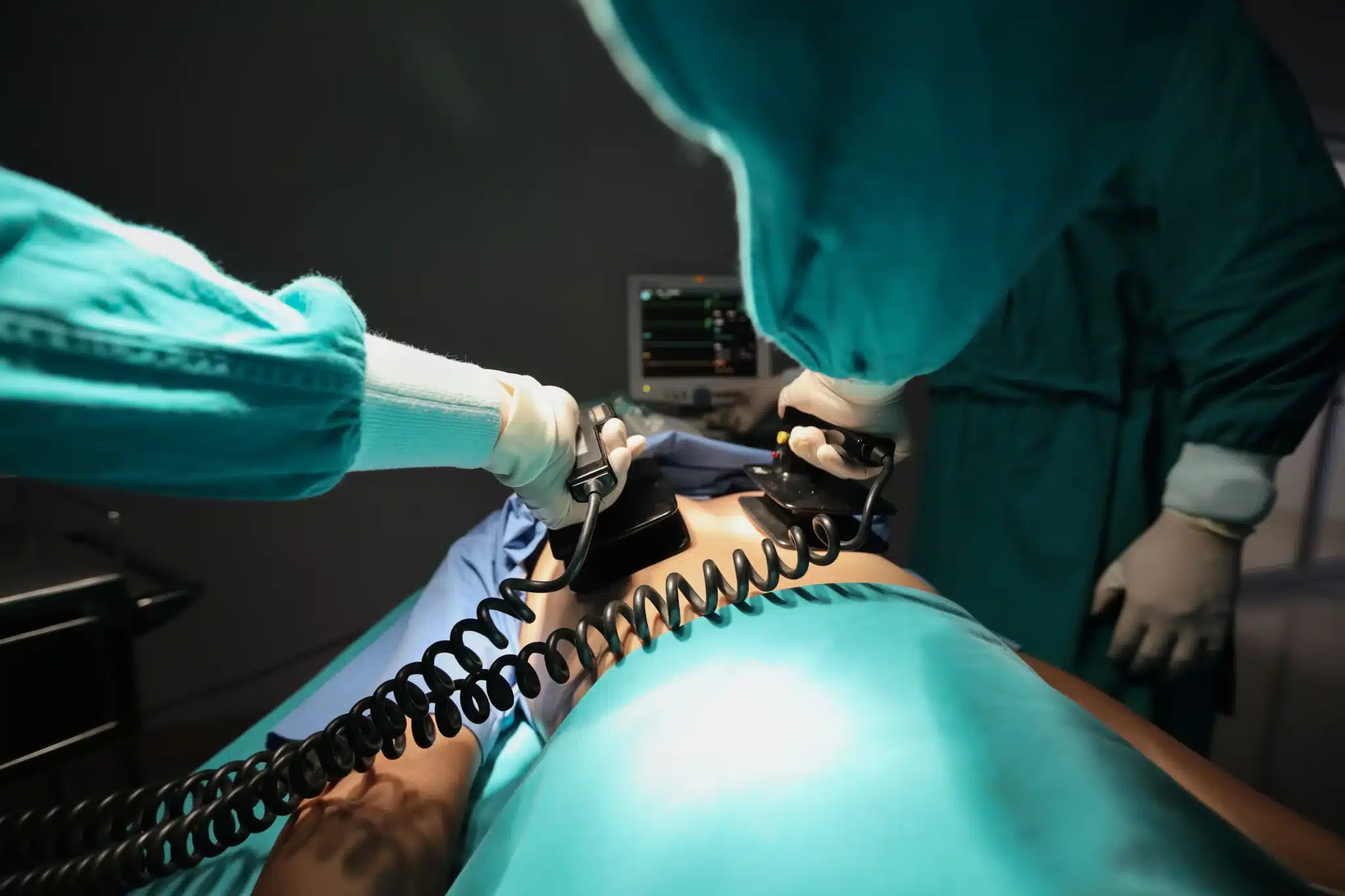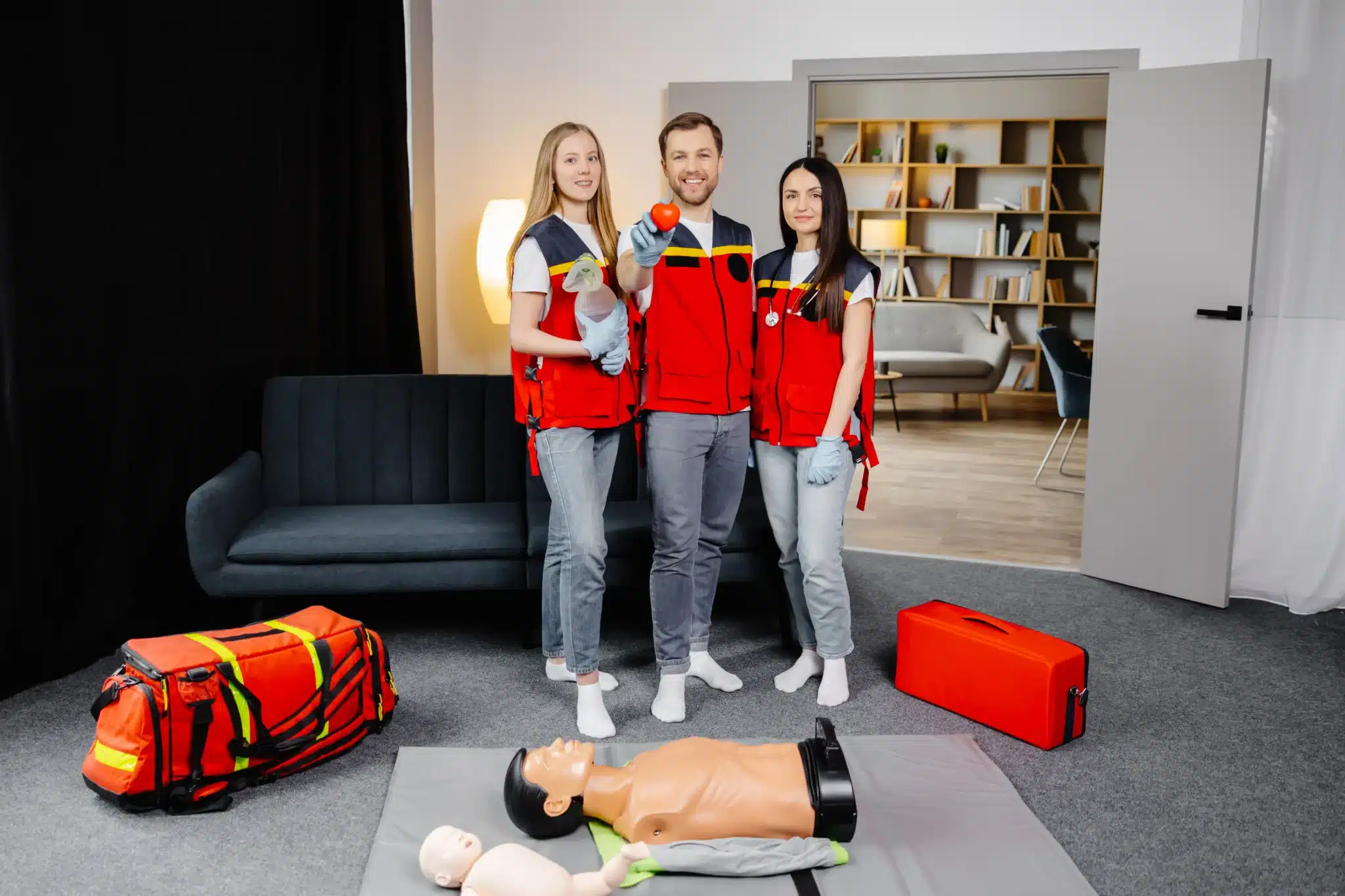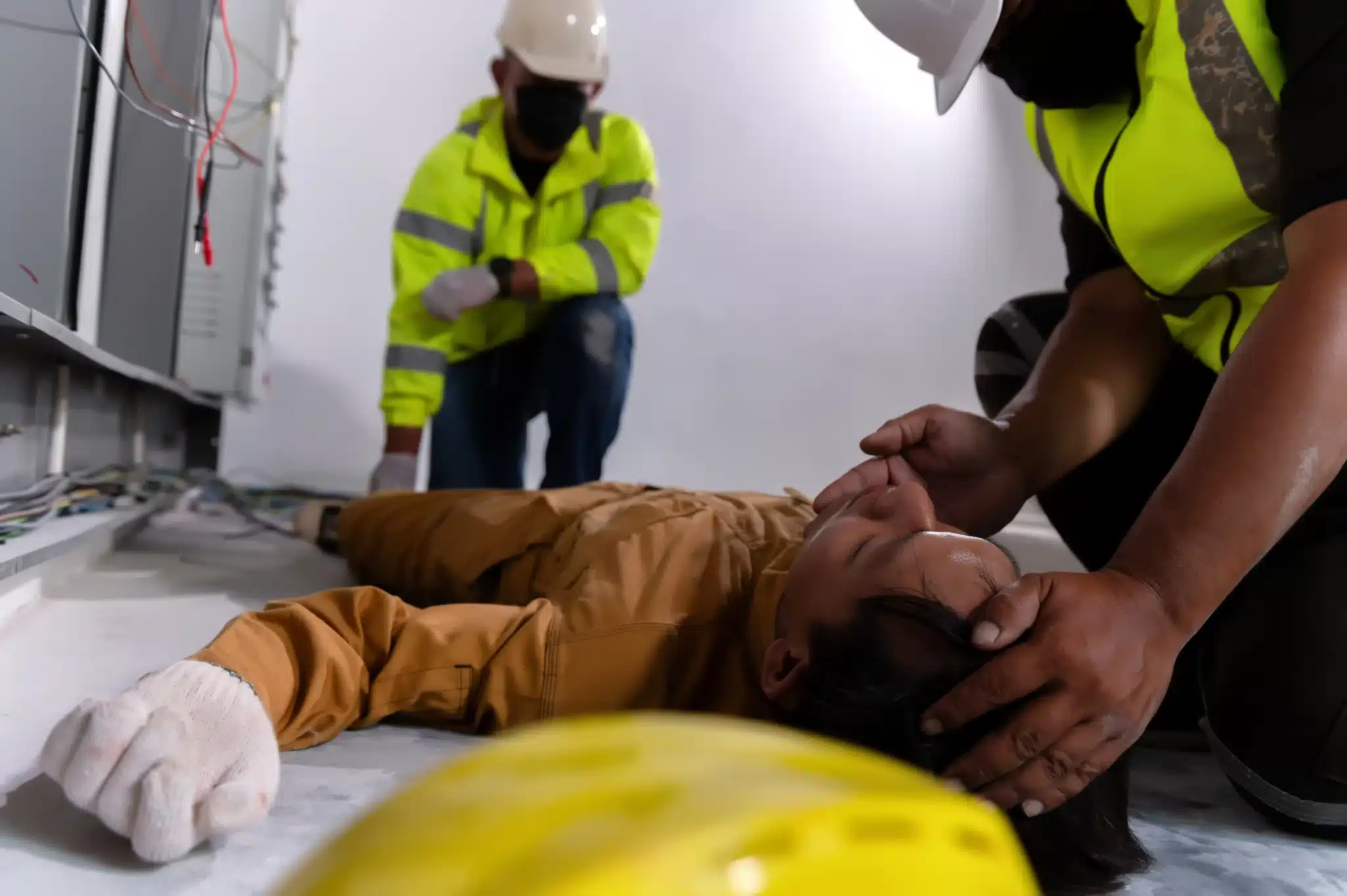From foundational CPR skills to advanced life support techniques, the right training can make all the difference in an emergency. This guide focuses on BLS ACLS PALS training Fremont, providing a clear overview of these essential certifications. Whether you’re a healthcare professional, a community member, or an organization seeking training for your team, we’ll help you find the right program in Fremont. We’ll discuss the benefits of each certification, explore various training providers, and offer insights into maintaining your skills and advancing your career.
Key Takeaways
- Understand the different levels of life-saving certifications. BLS provides essential CPR and AED skills, while ACLS and PALS offer advanced training for healthcare professionals dealing with cardiovascular and pediatric emergencies, respectively. Choose the certification that aligns with your current role and career aspirations.
- Select a training provider that meets your needs. Consider factors like location, schedule, class size, instructor experience, and the availability of online resources. Look for providers offering AHA-certified courses and positive student reviews, like Fremont CPR Classes.
- Stay current with your certifications. Maintain your skills and knowledge by adhering to renewal requirements, pursuing continuing education opportunities, and staying informed about the latest guidelines. Regular practice and refresher courses will help you confidently respond to real-world emergencies.
What are BLS, ACLS, and PALS?
These three certifications represent different levels of life-saving training, each designed for specific healthcare needs. Let’s take a closer look at what each one covers.
What is BLS?
Basic Life Support (BLS) provides the foundational skills needed to respond to cardiac arrest and other respiratory emergencies. BLS training focuses on recognizing life-threatening situations, performing high-quality CPR, and using an automated external defibrillator (AED). It’s the cornerstone for any healthcare provider and a valuable skill for anyone.
What is ACLS?
Advanced Cardiovascular Life Support (ACLS) builds upon the skills learned in BLS. This advanced training is designed for healthcare professionals who manage cardiac arrest and other cardiovascular emergencies. ACLS covers a broader range of interventions, including airway management, pharmacology, and team dynamics during resuscitation.
What is PALS?
Pediatric Advanced Life Support (PALS) focuses on the specific needs of infants and children facing life-threatening emergencies. PALS training emphasizes early recognition and intervention for respiratory distress, shock, and other pediatric emergencies. It equips healthcare providers with the specialized knowledge and skills to provide effective care in these critical situations. For more information, explore resources that debunk common PALS certification myths.
Why are these skills important?
These certifications are vital for maintaining high standards of patient care and improving outcomes in emergency situations. Whether you’re a healthcare professional or simply want to be prepared, having these skills can make a real difference. BLS, ACLS, and PALS training empowers individuals to respond confidently and effectively, ultimately contributing to a safer community. Learn more about BLS CPR courses in Fremont to get started.
Where to Find BLS, ACLS, and PALS Training in Fremont
Finding the right training center is key to a positive learning experience. Here are a few options for BLS, ACLS, and PALS certification in Fremont:
Fremont CPR Classes
Fremont CPR Classes offers various American Heart Association (AHA) certified courses, including BLS, ACLS, and PALS. They focus on providing high-quality instruction and convenient scheduling options for individuals and groups in Fremont, Newark, and San Jose. For businesses or large groups, they offer group discounts to make training more affordable. Reach out through their contact page for more information.
Safety Training Seminars
Safety Training Seminars provides AHA-certified BLS, ACLS, PALS, and CPR/First Aid classes in Fremont. They offer daily classes and on-site group training, making them a good choice for organizations needing to train multiple employees. Their emphasis on practical skills development helps build confidence in emergency situations. You can find them and other local providers listed in this helpful Northern California CPR directory.
California ACLS Training Institute
The California ACLS Training Institute offers online certification and recertification courses for ACLS, PALS, and BLS. This online format provides flexibility for busy professionals who need to renew or obtain certification on their own schedule. Their courses are designed to meet the specific needs of healthcare providers and ensure they stay current with the latest guidelines.
American Heart Association Training Centers
Several American Heart Association Training Centers in Fremont offer BLS CPR classes. These courses are essential for anyone wanting to learn life-saving techniques. They provide the knowledge and skills needed to respond effectively in emergencies. Check the AHA website to find a training center near you.
American Red Cross
The American Red Cross offers comprehensive training programs in both ACLS and PALS. Their resources clearly explain the difference between ACLS and PALS, helping you choose the right course for your needs. They equip participants with the skills to handle advanced life support situations. Contact them directly for class availability in Fremont.
Find the Right Course Format and Schedule
Choosing the right course format and schedule is key to successfully completing your training. Think about your learning style, your schedule, and what works best for you. Let’s break down the options.
Benefits of In-Person Training
In-person training provides that hands-on, interactive experience many people find beneficial. You get real-time feedback from instructors, can practice skills with classmates, and ask questions as they arise. This direct interaction is invaluable for mastering life-saving techniques. Fremont CPR Classes emphasizes the importance of in-person training for improving community safety.
Online and Hybrid Learning
If you need more flexibility, online or hybrid learning might be a better fit. Online courses let you learn at your own pace, anytime, anywhere. This format is especially helpful for busy professionals juggling work and other commitments. Hybrid learning combines online coursework with in-person skills sessions, offering a blend of flexibility and hands-on practice. ACLS Certification California offers online ACLS courses.
Course Durations
Before you commit to a course, it’s important to understand the time commitment involved. BLS CPR courses in Fremont typically run between four and six hours, depending on the provider and format. Online review videos can significantly improve your chances of passing the skills test, so factor that time into your schedule. Bay Area CPR provides estimated online course lengths.
Flexible Scheduling
Finding a course that fits your schedule shouldn’t be a hurdle. Fremont CPR Classes offers classes daily in over 60 cities across Northern California, giving you plenty of options. If you’re training with a group, look into providers that offer on-site group classes and discounts, like those available through Bay Area CPR. This can make scheduling much easier and more cost-effective.
Understand Training Costs
CPR, first aid, and advanced life support training are investments in your skills and your community’s safety. Understanding associated costs helps you budget effectively and find the best value. Let’s break down the typical price ranges for BLS, ACLS, and PALS courses in Fremont.
BLS Certification Costs
BLS (Basic Life Support) certification is the foundational course for anyone interested in responding to medical emergencies. It covers essential techniques like CPR, using an AED, and relieving choking. BLS certification typically costs around $65 for renewals and $95 for initial certification. Fremont CPR Classes offers competitive pricing, so check our website for the latest information.
ACLS Certification Costs
ACLS (Advanced Cardiac Life Support) certification builds upon BLS skills and focuses on advanced cardiovascular emergencies. This course is designed for healthcare professionals like doctors, nurses, and paramedics. ACLS certification usually costs around $225 for initial certification and $150 for renewals. You can find more information on our ACLS course page.
PALS Certification Costs
PALS (Pediatric Advanced Life Support) certification equips healthcare providers with the specialized knowledge and skills to respond to emergencies involving infants and children. Similar to ACLS, PALS certification is usually priced around $225 for initial certification and $150 for renewal courses.
Group Discounts
If you’re training a team or group, consider taking advantage of group discounts. Many training providers, including Fremont CPR Classes, offer reduced rates for group bookings. This can be a cost-effective way to ensure everyone in your workplace or organization has the necessary life-saving skills. Contact us to learn more about our group discounts.
What Happens During Training?
Getting certified in BLS, ACLS, or PALS involves more than just book learning. These courses blend theory with hands-on practice to prepare you for real-world scenarios. Here’s a glimpse of what you can expect:
Course Content and Skills
Your training will cover essential life-saving techniques tailored to the specific certification you’re pursuing. For example, a BLS course teaches single-rescuer and team-based CPR for adults, children, and infants. You’ll also learn how to relieve choking and use an AED. ACLS courses delve into advanced cardiovascular life support techniques, while PALS courses focus on pediatric emergencies. Expect comprehensive instruction on recognizing and responding to various medical crises.
Hands-on Practice
Hands-on practice is a cornerstone of effective CPR training. You’ll work with mannequins to simulate real-life emergencies, practicing chest compressions, rescue breaths, and other crucial skills. This practical training builds your muscle memory and confidence, ensuring you can perform under pressure.
Class Size and Learning
Class sizes can vary, impacting the level of individual attention you receive. Smaller classes often allow for more personalized instruction and feedback from the instructor. Fremont CPR Classes offers courses daily in over 60 cities across Northern California, providing flexibility and convenience. They also offer the RQI (Resuscitation Quality Improvement) program, which incorporates online components for a faster, more adaptable learning experience.
Exams and Certification
To earn your certification, you’ll need to pass both written and practical exams demonstrating your understanding of the material and your ability to perform the required skills. Upon successful completion, you’ll receive an official American Heart Association certification card, valid for two years. The length of the certification course itself can range from four to eight hours, while recertification typically takes two to four hours. Knowing this information helps you plan your training schedule effectively.
Choose the Right Training Provider
Finding the right training provider is just as important as choosing the right course. Here’s what to look for:
Factors to Consider
Think about what makes learning convenient for you. Do you need a training center close to home or work? Is weekend or evening availability a must-have? Fremont CPR Classes offers classes daily across Northern California, giving you plenty of options. Consider your learning style and schedule constraints when making your decision. For a blended learning approach, their RQI (Resuscitation Quality Improvement) program combines online learning with in-person skills sessions.
Reviews and Testimonials
Before signing up, see what other students have to say. Reading reviews gives you a feel for the quality of instruction and customer service. Look for comments that mention knowledgeable instructors, helpful staff, and a positive learning environment. Positive feedback can give you confidence that you’re making a smart choice.
Accreditation and Certification
Make sure the training provider offers accredited courses that result in a recognized certification, like the American Heart Association certification cards. This is especially important if you need the certification for your job. A recognized credential proves you’ve completed a quality training program and met specific standards. These certifications are typically valid for two years.
Instructor Qualifications
Experienced, qualified instructors make all the difference. Look for training centers with instructors who have a strong background in healthcare and a passion for teaching. Specialized training centers often mean instructors have extensive real-world experience to share with their students.
Explore Training Technology and Resources
Technology plays a significant role in modern CPR and first-aid training. Understanding the available tools and resources can help you choose a program that fits your learning style and needs. Let’s look at how training equipment, online materials, and mobile apps enhance the learning experience.
Training Equipment
High-quality training equipment is essential for developing the muscle memory and practical skills needed to perform CPR effectively. Many training centers, like those offering BLS certification, use advanced mannequins for realistic practice. Some facilities use voice-activated mannequins for skills testing, providing a simulated real-world experience. While an instructor may not be present during these tests, support is often available by phone.
Online Study Materials
Online resources offer flexibility and convenience. Many courses are available online, allowing you to learn at your own pace. These courses often incorporate videos, interactive exercises, and realistic scenarios. The online portion of a BLS course might take between one and two hours to complete, while more advanced courses like ACLS or PALS could require three to four hours, depending on your prior experience. This blended learning approach lets you study the material before attending any in-person skills sessions.
Mobile Apps
Mobile apps offer another valuable tool for learning and reinforcing BLS, ACLS, and PALS skills. Some training providers include access to a dedicated study app. These apps can provide quick refreshers on key concepts, quizzes, and even simulated scenarios to practice decision-making. Having these resources on your phone can help you stay sharp and confident.
Maintain Your Certifications
Once you’ve earned your BLS, ACLS, or PALS certification, staying current is key. Knowing the renewal requirements and committing to continuing education will ensure your skills are sharp and your certification remains valid.
Renewal Requirements
It’s important to understand that certifications like BLS, ACLS, and PALS expire. Generally, these certifications are valid for two years. Check with your certifying organization, such as the American Heart Association, for specific renewal requirements. Recertification is essential for healthcare providers to stay updated, as highlighted by Medtigo. Don’t let your skills lapse—stay ahead of the curve.
Continuing Education
Even if your certification isn’t due for renewal, ongoing learning is crucial in healthcare. The National Institutes of Health (NIH) emphasizes the importance of continuous education and training for healthcare professionals. BLS certification is a fundamental component of this ongoing professional development, as explained by American Health Training. Consider taking refresher courses or attending workshops to keep your knowledge and skills fresh.
Latest Guidelines
Medical best practices are constantly evolving. When you recertify, make sure your chosen course adheres to the most recent guidelines. Staying informed about these updates ensures you’re providing the highest quality care. Look for courses that follow the latest AHA and ECC/ILCOR guidelines, such as those offered by Fremont CPR Classes. This commitment to current standards demonstrates your dedication to providing effective care.
Advance Your Career
Whether you’re a seasoned healthcare provider or just starting out, having up-to-date certifications in Basic Life Support (BLS), Advanced Cardiovascular Life Support (ACLS), and Pediatric Advanced Life Support (PALS) can significantly impact your career. These certifications demonstrate a commitment to excellence and provide a foundation for professional growth.
Career Benefits of Certification
These certifications are often prerequisites for many healthcare roles. Holding these credentials can open doors to more job opportunities and may increase your earning potential. Understanding common misconceptions about BLS is a great first step towards getting certified. Certification shows employers you have essential skills to handle critical situations, making you a more competitive candidate. For those already working in healthcare, maintaining these certifications can lead to promotions and greater responsibilities. These credentials on your resume instantly communicate your dedication to providing high-quality patient care. ACLS and PALS certifications are particularly valuable if you’re looking to specialize in areas like emergency medicine or critical care.
Networking Opportunities
Training courses offer more than just certifications; they provide excellent networking opportunities. You’ll connect with other professionals who share your commitment to patient care. These connections can lead to mentorships, collaborations, and even future job opportunities. Learning alongside peers creates a supportive environment where you can exchange experiences and build professional relationships. The availability of group CPR classes in Fremont makes connecting with other local professionals even easier.
Real-World Skill Application
The skills you gain in BLS, ACLS, and PALS courses go beyond the classroom. These certifications equip you with the practical knowledge and confidence to respond effectively in real-world emergencies. BLS training provides a foundational skill set for any healthcare professional and is crucial for handling various emergencies. PALS certification focuses on the unique needs of children and infants, enabling you to respond to emergencies involving younger patients. These skills are not only valuable for your career but also empower you to make a real difference.
Related Articles
- Why CPR is Important in Healthcare – Fremont CPR Classes
- BLS CPR Courses in Fremont, CA – Fremont CPR Classes
- Workplace CPR and First-Aid Training Benefits
- AHA ACLS Classes in Fremont, CA – Fremont CPR Classes
- AHA PALS Classes in Fremont, CA – Fremont CPR Classes
Frequently Asked Questions
What’s the difference between BLS, ACLS, and PALS?
BLS (Basic Life Support) teaches fundamental life-saving skills like CPR, AED use, and choking relief. ACLS (Advanced Cardiovascular Life Support) builds on BLS, focusing on advanced interventions for cardiovascular emergencies. PALS (Pediatric Advanced Life Support) specializes in the care of infants and children during emergencies. Think of them as building blocks, with BLS as the foundation and ACLS/PALS providing specialized knowledge for healthcare professionals.
How do I choose the right CPR class format for me?
Consider your learning style and schedule. In-person classes offer hands-on practice and immediate feedback. Online courses provide flexibility, letting you learn at your own pace. Hybrid courses combine online learning with in-person skills sessions. Think about what helps you learn best and how much time you can commit.
How much do these certifications cost?
Costs vary depending on the course and provider. BLS certification typically ranges from $65 for renewals to $95 for initial certification. ACLS and PALS certifications are usually around $225 for initial certification and $150 for renewals. Many providers offer group discounts, so inquire about those if you’re training a team.
What should I look for in a training provider?
Look for accredited providers offering certifications from recognized organizations like the American Heart Association. Check reviews and testimonials to gauge the quality of instruction and customer service. Consider instructor qualifications, class size, and convenient scheduling options. A good training provider will offer a supportive learning environment and equip you with the skills you need.
How can I maintain my certifications?
Certifications typically expire after two years. Stay informed about renewal requirements and commit to continuing education. Look for refresher courses and workshops to keep your skills sharp and your knowledge up-to-date. Staying current with the latest guidelines ensures you’re providing the best possible care.
This article was written for free by MEGA SEO.
